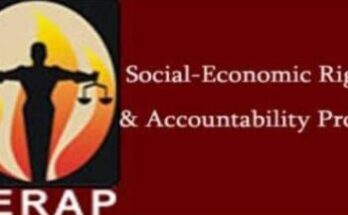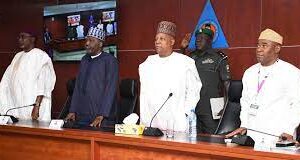As the 2023 general elections is fast approaching, OKECHUKWU ONUEGBU writes on how the Independent National Electoral Commission (INEC) is galvanising journalists and Civil Society Organisations (CSOs) in South East preparatory to the polls.




Quest for credible polls
In about two months time, precisely on 25 February and 11 March 2023, the much awaited general elections will become a thing of past. The INEC which is the electoral umpire has assured and reassured and keeps reassuring that the polls would be peaceful, transparent and credible.
Similarly, President Muhammadu Buhari has also reiterated his willingness to leave a legacy of credible, free and transparent elections.
INEC trains and sensitises stakeholders
As a result, the commission has habitually partnered with organisations to train journalists, CSOs and other stakeholders with a view to acquaint the public with the knowledge of relevant sections of the Electoral Acts 2022 and other vital information needed.
Consequently, stakeholders in the six geopolitical zones, states, Local Government Areas, electoral wards, communities, families and individuals are sensitised through training.
One such training is a-two day capacity building workshop for journalists and Civil Society Organisations (CSOs) in the South East geopolitical zone recently held at Enugu state in collaboration with the Nigeria Union of Journalists (NUJ) and Centre for Democracy & Development (CDD).
Speaking at the programme themed “Conflict Sensitive Reporting and the 2023 General Election,’ the INEC National Commissioner and Chairman Information and Voter Education, Barr. Festus Okoye, described the media as a critical stakeholder in the political process and a key partner constitutionally empowered to support the commission in sensitising the public with relevant information pertaining to the electoral process.”
Okoye, represented by Deputy Director of Voter Education and Publicity, Chukwuemeka Ugboaja, contended that it was imperative that the media became aware and understood that preparations for elections, the conduct of elections and the resolution of electoral disputes because they “are in a class of their own and cannot be discussed and analyzed from a generic point of view” but within the context of Nigeria’s electoral jurisprudence.
He said “The third issue is that the work of the commission and the conduct of electoral business has national security implications, which implies that reporting elections needs to be handled with an eye on conflict sensitivity and national peace and cohesion. The fourth is that it is in the interest of the country for the media to always seek for official clarification on germane and serious national issues, especially, when electoral matters are involved, instead of relying on the opinion of unnamed “highly placed officials” of the Commission and those of ‘a National Commissioner that does not want to be named.’
“The fifth is that the media must hold a balance between all the contending parties and candidates. Section 95(2) of the Electoral Act, 2022 is categorical that State apparatus including the media shall not be employed to the advantage or disadvantage of any political party or candidate at any election and section 95(3) of the Act also provides media time shall be allotted equally among the political parties or candidates at similar hours of the day.
“The Independent National Electoral Commission (INEC) will continue to partner with the media, not only as a key stakeholder in the electoral process but also as an viable tool for combating misinformation, fake news and malicious falsehood. The Commission believes that the antidote to fake news and misinformation is greater openness and transparency.”
CDD, a partner underscores media relevance
The Director of Centre for Democracy and Development, Idayat Hassan, who re-echoed the INEC position, maintained that the media and CSOs could make or mar the outcome of the forthcoming elections if not well engaged with the various provisions on the 2022 electoral act.
Hassan, represented by the Grant and Partnership Manager of CDD, Mr Ihekoronye Damian, said the trainings which cut across the six geopolitical zones of the country was to ensure that the 2023 elections were credible, transparent and peaceful.
According to CDD, this is because we think that the media campaign is very important in every organisation to be sure we can have a peaceful and credible election because we can have a credible election that cannot be peaceful, so we demand to have a credible, transparent, and peaceful election.”
Ihekoronye further said, “This training happening here today can play a very good role if the journalist and the civil society decision are sensitive to their communication and media messages that there pass on you will be able to guarantee a credible, transparent and peaceful.”
Role of journalists in elections
Speaking on the role of the media in the conduct of peaceful Elections, the National President of NUJ, Chief Chris Isiguzo, also observed that the training would enable the media professionals brainstorm and prepare ahead of the 2023 election year.
Isiguzo, represented by the National President, Nigeria Association of Women Journalists (NAWOJ), Comrade Ladi Bala, argued that “media professionals ought to actively involve in all the electoral processes, starting from preparation (pre-voting stage), process of voting where citizens come to cast their votes and after the election.”
The NUJ boss also urged his colleagues to generally beam searchlight on the umpire to ensure that they are impartial, competent, embraces transparency and inclusivity in their composition and mandate in order to discharge their duties effectively and efficiently.
To him, “journalists should equally promote peace and unity in their reportage before, during and after elections, and beyond because peace is a basic requirement in a democracy. No democracy can flourish in the absence of peace. As Journalists, we are expected to develop a thorough understanding of the elections and the electoral process, an understanding of conflicts and convey these to citizens in a way that reflect the truth in all their complexities.“
He was of the view that the proper foundation established by journalists will provide citizens with the opportunities they require to make informed judgments about issues involved and perhaps help the government in taking meaningful decisions. Media professionals should (therefore) brace up for the challenges ahead, especially since they are expected to participate in the process of social reconstruction and democratisation by providing a positive and participatory forum for the exchange of ideas, democracy and nation building and while discharging their duties.”
Continuing, Isiguzo urged “journalists never attempt to deviate from the ethics of the profession because it will not auger well for the nation. Since the role of the media in Nigeria’s emerging democracy is central, media professionals must maintain the highest possible standards in their practice.
“The NUJ is committed to improving the ethical standard of news reportage during elections. We are keen in ensuring that Nigerian Journalists undertake their professional duties within the ambit of the Electoral Law and other regulations.”
Addressing voter apathy
To the INEC Resident Electoral Commissioner in Enugu state, Mr Chukwuemeka Joseph Chukwu, represented by the Deputy Director and Head of Department, Voter Education and Publicity, Achumie Chuka Rex, said, “voter apathy is an interesting area the media should assist in reducing or totally annihilating in the South East geopolitical zone.
The Enugu REC noted that voter apathy can be curbed by educating the populace who participated on the continuous voters registration exercise to collect their Permanent Voters’ Cards (PVC) at local government areas or wards they are to vote between December 12, 2022 to January 22, 2023.
“Distribution of PVC has commenced at Local Government levels. We open between 9am to 3pm every day. It started since December 12, 2022 and will end on December 22. Then, we will move down to wards levels from December 16 to January 22, 2023. We need the help of the media to inform the populace of the needs to do this because it is not good enough to enroll for continuous voters registration without collection of their PVC. They also need to come out en-mass and vote,” he stated.
Importance of Electoral Act 2022
On his part, the Head of Legal Unit, INEC, Enugu state, Humphrey Okoli, underscored the importance of the amendment electoral act 2022, which according to him, prepared solid ground to make votes count and upholds the people hope and straighten Nigeria democracy.
Okoli listed some important provisions in the Act that could enable free and fair poll as Biomodal Voting System (BVAS), release of funds to the INEC for general elections at least one year before the election, INEC server, punishment for electoral offences like vote buying, violence, among others.
Promoting peace in reportage
Speaking on the theme, Conflict Sensitive Reporting in elections, a media expert, Mr Chibuike Utaka, enjoined professional journalists and editors to refrain from copying news from the new media but set agenda for the populace by investing on investigation, writing and casting headlines to promote peace rather than tension and violence.
Also, Mr Austin Aigbe of CDD, while speaking on techniques for countering fake news, misinformation, disinformation, and other anomalies, charged journalists and CSOs to arm selves with fact checking tools like Google Reverse Search and Tin eye, pay attention to details, consult authorities to clear doubts, inculcate habits of critical thinking, among others.
Contributing, some of the participants including, Mr Larry Nwiwu, Ms Chinaza John and Chika Ewulum, described the training as topnotch, which they believed had armed them with relevant information to train and sensitise others for successful 2023 poll.




